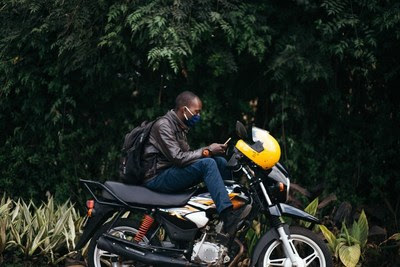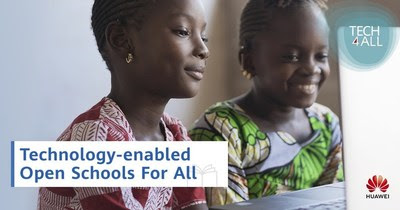SOLRE 2022 – State of Luxury Real Estate

SOLRE 2022 – State of Luxury Real Estate Report – Luxury Portfolio International
Number of Luxury Real Estate Sellers Increases Globally; Some Buyers Expressing FOMO (Strong Fear of Missing Out); Sustainability ‘Critically Important’ Among Affluent Buyers Worldwide
Latest Report Comprises Data from Top 1-5% Bracket Surveyed Across 20 Countries, Representing an Affluent Population of Almost 32 Million Households
NEW YORK, Dec. 01, 2021 (GLOBE NEWSWIRE) — Luxury Portfolio International® (LPI), the world’s premier network of luxury residential real estate brokerages, is pleased to share the results of its 2022 State of Luxury Real Estate Report (SOLRE). The study comprises data from individuals in the top 1% to 5% income bracket across 20 countries, and touches on a broad range of topics crucial to the global luxury residential real estate market.
Most notably, the LPI report reveals a continuation of dominating home purchasing-related trends that began during Q3 2020 and continued throughout all of 2021, showing that demand for luxury real estate remains high; price increases expected to continue; supply remains lower than demand; time-on-the-market for luxury single-family homes often continues to “last just hours”; and sustainability is ‘Critically Important’ (66 percent) when considering future home purchases.
The study also shows an increase in the number of affluent sellers of residential real estate worldwide; that among luxury homes buyers, the majority (74 percent) shared strong feelings of a personal economic confidence and still 75 percent are significantly concerned that their discretionary spending power could be tested soon.
And while 2022 is expected to continue at a fast pace, there are signs that the luxury residential real estate market will be increasingly stabilizing, a crucial step to avoid complications for a long-term, super-heated market.
With 75 percent of luxury home buyers choosing their next home with environmental sustainability headlining a broad range of findings from a study of the world’s affluent households by Luxury Portfolio International® (LPI), 2021 ends as one of the most robust luxury residential real estate markets in history.
“After a record-breaking year in luxury real estate, we anticipate that some balance will be restored to the market,” said Mickey Alam Khan, President of LPI. “It is important to view the luxury market over a trajectory of several years, noting that half of 2020 was in paralysis due to the pandemic. The red-hot market that began in the latter part of 2020 continued into 2021 and will continue a positive trajectory into 2022. The difference will be that there will be more luxury sellers in 2022 than in 2021, and while there will be fewer actual luxury buyers, it is still a seller’s market. The pandemic madness that drove us to an over-heated market is being normalized. Demand will remain strong, and a healthy, new normal in luxury real estate will start to take hold in 2022.”
Sustainability, according to the study, is now a major differentiator in luxury homes, and buyers are willing to pay a premium to have features and amenities that better prepare them for the future. 75 percent of those surveyed noted choosing their next home with sustainability in mind, with an unprecedented 90 percent noting “yes” as to factoring sustainability in relation to a Next Chapter in Life home search. According to the study, a “Next Chapter in Life” home search pertains to those moving to be closer to family, because of their children’s education, a career move, and other mitigating factors.
People interested in sustainability as a major factor of their home purchase are 71 percent more likely to view the purchase as a legacy home that will be passed on to their heirs. Further, as interest in sustainability grows, the quality of the buyer improves for the benefit of the seller, in that this buyer wants to transact sooner and for a relatively higher budget.
FOMO, or Fear of Missing Out is the feeling of anxiety that an exciting or interesting event may currently be happening elsewhere, often aroused by posts seen on social media. With a year at home and headlines touting the hot market, FOMO has become a significant concern for 26 percent of luxury buyers. FOMO manifests in different ways, first as a true “missed the boat” moment where prices extend beyond reach. A second concern – equally impactful – is arranging finances for major purchases.
While COVID-19 remains a significant concern, the study revealed that the market has already accounted for much of its effects. This compared to last year when the top trend in luxury real estate was finding a home that would accommodate the family that works from home.
That said, according to the study, working from home, is wearing on a substantial percentage of luxury home buyers. The Study revealed that 27 percent of luxury buyers cited working from home as a ‘significant concern.’ Remote work and the associated frustration and stress of being home continues to play a significant role in the purchase decision process.
Buyers concerned about de-stressing their work-from-home environment noted diversions such as entertainment at home, night life nearby, and relaxation-inducing amenities like a spa/hot tub, a specialty cocktail scale, and specialty rooms for media and gaming.
Additional key findings from the research include:
- Globally, the affluent class remains highly interested in purchasing residential real estate at any price, with a 33 percent increase year-over-year. There is no doubt that 2021 will end with a backlog of buyers, setting up 2022 as another strong year for luxury real estate.
- Over 14 million affluent households remain interested in buying a residence, of which 6.4 million are in the luxury category. An additional 1.2 million luxury homeowners have found an interest in selling in the next 3 years, up 32 percent from last year. Record valuations no doubt play a key role in this decision.
- Working together, these factors indicate global price stabilization and market normalization is in store for 2022 and beyond. What once appeared to be a wide chasm between the number of potential buyers and sellers (10.3MM buyers and 4.0MM sellers) is moving appropriately towards equilibrium (6.4MM buyers and 5.2MM sellers).
- The global trend for residential real estate demand will continue to grow in 2022. The percentage of individuals in the market to purchase residential real estate by the end of 2022 increased from 19 percent in 2021 to 39 percent in 2022 in Europe, and from 30 percent in 2021 to 37 percent in 2022 in Asia/Pacific. 46 percent of those surveyed from the Middle East, specifically consumers from Saudi Arabia and the UAE have the greatest interest in acquiring residential real estate, as those individuals continue to diversify their holdings. North America shows modest growth from 21 percent in 2021 to 25 percent in 2022.
- Luxury homeowners are coming around to selling. With new construction experiencing delays due to the challenges with goods and services, there is a consistent interest in existing homes. However, owners were not necessarily in the market to sell last year, and consequently the lack of inventory has been a significant price driver in most luxury markets. Now, it seems that luxury owners are convinced that the iron is hot and their interest in selling has increased by more than double (to 28 percent from 11 percent). In fact, 71 percent of owners believe their home value will increase this year, creating a strong incentive to sell. The average luxury homeowner expects an increase of approximately 4–5 percent compared to 3–4 percent last year.
- Psychologically it remains a seller’s market. In practice, we can expect a more balanced ratio of buyers and sellers in the years to come. As affluent consumers participate in the residential market, luxury-residence seekers are down 58 percent in 2021 (from 34 percent to 20 percent of the total affluent), while conversely, in this delicate balancing act, the number of luxury sellers is on the rise by 26 percent (up to 16 percent from 13 percent of the total affluent).
- While the flight to suburbia has been a major COVID headline, the research reveals that city-center luxury residential real estate is alive-and-well. Over half of luxury buyers worldwide (55 percent) expect to buy their next residence in a city and 77 percent will be within commuting range. Notably, Asia-Pacific luxury buyers are significantly more likely to buy in the city center than their global counterparts.
- Single-family home popularity surges beyond North America. The research revealed that the popularity of single-family homes is growing on a global scale, with 40 percent of Europe/Middle East buyers and 29 percent of Asia-Pacific buyers seeking the luxury of additional space and privacy. Year on year, demand for this type of housing is increasing as, collectively, shared living spaces are becoming less attractive to the luxury buyer. North America remains the top driver for demand of this type of residence.
- A new class of entry-level luxury buyer enters the market. Across the full spectrum of affluent consumers, there is greater interest in purchasing real estate under $1 million. This signals a resurgence of upper-middle class buyers who delayed in purchasing due to the pandemic, or who are now willing and able to acquire. Consequently, this is creating an increase in the number of entry-level luxury buyers, up to 44 percent from 39 percent in the USD 1-1.9 million range. This democratic luxury-for-the-many effect is most pronounced in North America and less so in Asia Pacific and Europe/Middle East, where the wealthy class tends to skew toward relatively small groups of people with very high concentrations of wealth.
For additional information, and access to the report, click here: State of Luxury Real Estate 2022.
ABOUT LUXURY PORTFOLIO INTERNATIONAL® (LPI)
Luxury Portfolio International (luxuryportfolio.com) is the leading network of the world’s premier luxury real estate brokerages and their top agents, offering unparalleled marketing and intelligence services across the globe. It is the luxury arm of Leading Real Estate Companies of the World® the global network of top independent real estate firms, with 550 companies and 150,000 sales associates in 70 countries. Last year, network members participated in over 1.3 million global transactions. LPI attracts a global audience of visitors from over 200 countries/territories every month and markets more than 50,000 luxury homes annually. Well Connected.™
Source: Luxury Portfolio International®
A photo accompanying this announcement is available at https://www.globenewswire.com/NewsRoom/AttachmentNg/cc7a46a4-e6fd-43f9-91e6-834f31b75e8e
A PDF is available at http://ml.globenewswire.com/Resource/Download/3c08ae81-d703-4faf-8ea2-dc5c9c70ed7e
Contact: pr@luxuryportfolio.com






